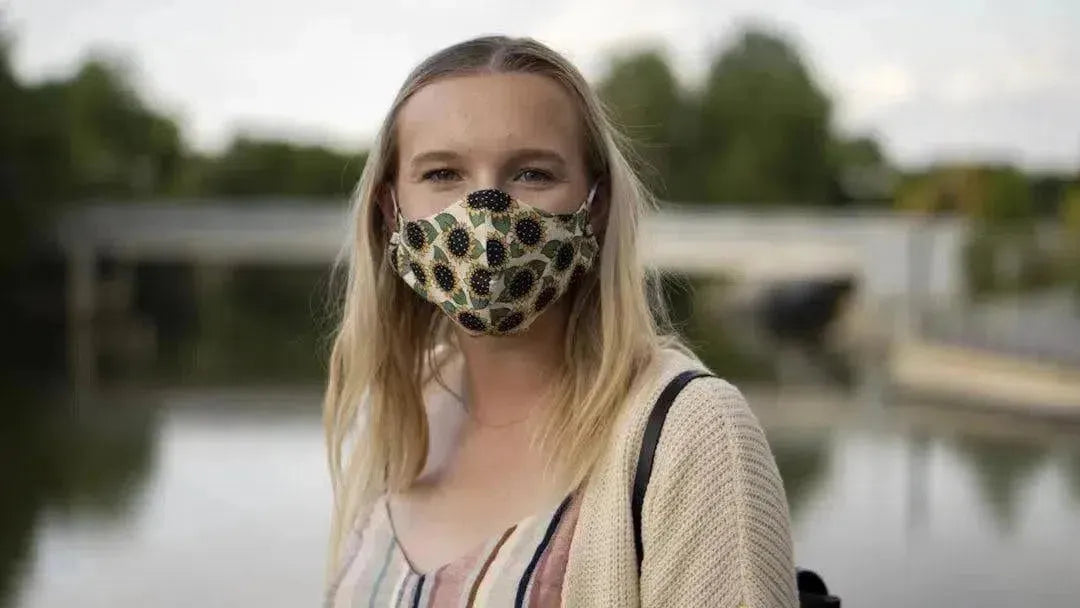The Psychology Behind Mask-Wearing and Its Effect on Society

Mask-wearing has become an integral part of our daily lives, especially with the rise of COVID-19. Beyond its practical benefits in preventing the spread of infectious diseases, the act of wearing a mask carries significant psychological implications that have shaped societal norms and behaviors. Let's delve into the psychology behind mask-wearing and explore its profound impacts on individuals and communities.
The Psychological Significance of Mask-Wearing
From a psychological standpoint, putting on a mask serves as a symbol of protection and responsibility. When individuals wear a mask, they not only safeguard themselves but also demonstrate care and consideration for the well-being of those around them. This act of altruism can foster a sense of community and solidarity, reinforcing the idea that we are all in this together.
Moreover, the anonymity provided by masks can have a liberating effect on individuals. For some, wearing a mask offers a sense of privacy and security, allowing them to move through public spaces without the pressure of social expectations or judgments. This newfound sense of anonymity can lead to increased comfort levels and a reduced sense of self-consciousness.
The Impact of High Filtration Masks on Behavior
One type of mask that has gained prominence in recent times is the High Filtration Mask. These masks are designed to filter out a higher percentage of particles, providing enhanced protection against airborne contaminants. The use of High Filtration Masks has not only become a safety measure but also a symbol of commitment to health and well-being.
Individuals who opt for High Filtration Masks may be viewed as more cautious and conscientious, which can influence how they are perceived by others. This conscious choice to prioritize safety can inspire a ripple effect, encouraging those around them to take similar precautions and adopt responsible behaviors in the face of health risks.
The Societal Shift Towards Mask-Wearing
As mask-wearing has become more widespread, it has catalyzed a societal shift in how we engage with one another. Masks have become a visual cue that signals adherence to public health guidelines and a shared commitment to collective safety. This collective behavior change reflects a shift towards a more community-oriented mindset, where individual actions have broader implications for public health.
Normalization of Mask-Wearing
What was once a novel sight has now become a common occurrence in our daily interactions. The normalization of mask-wearing has not only altered our physical appearances but also reshaped our social interactions. Masks have become a new form of non-verbal communication, allowing individuals to express care, caution, and solidarity without saying a word.
Psychological Impact on Children
For children, the sight of adults and peers wearing masks can be both novel and unsettling. Masks may obscure facial expressions and make it challenging for children to read emotional cues, leading to potential confusion or anxiety. However, with time and guidance, children can adapt to mask-wearing and understand its role in promoting safety and well-being.
The Role of Mask-Wearing in Mitigating Anxiety
Although mask-wearing has become a norm, it can also trigger feelings of anxiety or discomfort in some individuals. The act of covering part of the face can evoke a sense of restriction or loss of identity. However, it is essential to recognize that mask-wearing is a temporary measure designed to protect public health and that the benefits often outweigh the temporary discomfort.
Moreover, for individuals with health conditions or compromised immune systems, the use of High Filtration Masks can offer a sense of reassurance and peace of mind. Knowing that they are taking extra precautions to safeguard their health can alleviate anxiety and empower individuals to navigate public spaces with greater confidence.
Empowering Communities Through Mask-Wearing
Mask-wearing not only protects individuals but also empowers communities to come together in the face of adversity. By embracing masks as a symbol of responsibility and solidarity, we demonstrate our commitment to safeguarding the well-being of our neighbors and loved ones. This collective effort serves as a powerful reminder of the resilience and compassion that unite us all.
Enhancing Public Health Practices
High Filtration Masks play a crucial role in enhancing public health practices and curbing the spread of infectious diseases. By prioritizing the use of masks with superior filtration capabilities, we can create safer environments for ourselves and others. This proactive approach to health and safety sets a precedent for responsible behavior and contributes to the well-being of society as a whole.
Cultivating a Culture of Care
Ultimately, the psychology behind mask-wearing underscores the importance of cultivating a culture of care and consideration for one another. Through the simple act of wearing a mask, we not only protect ourselves but also demonstrate empathy and solidarity with our communities. As we navigate the complexities of a changing world, let us remember that our collective actions have the power to shape a safer and more compassionate society for all.






